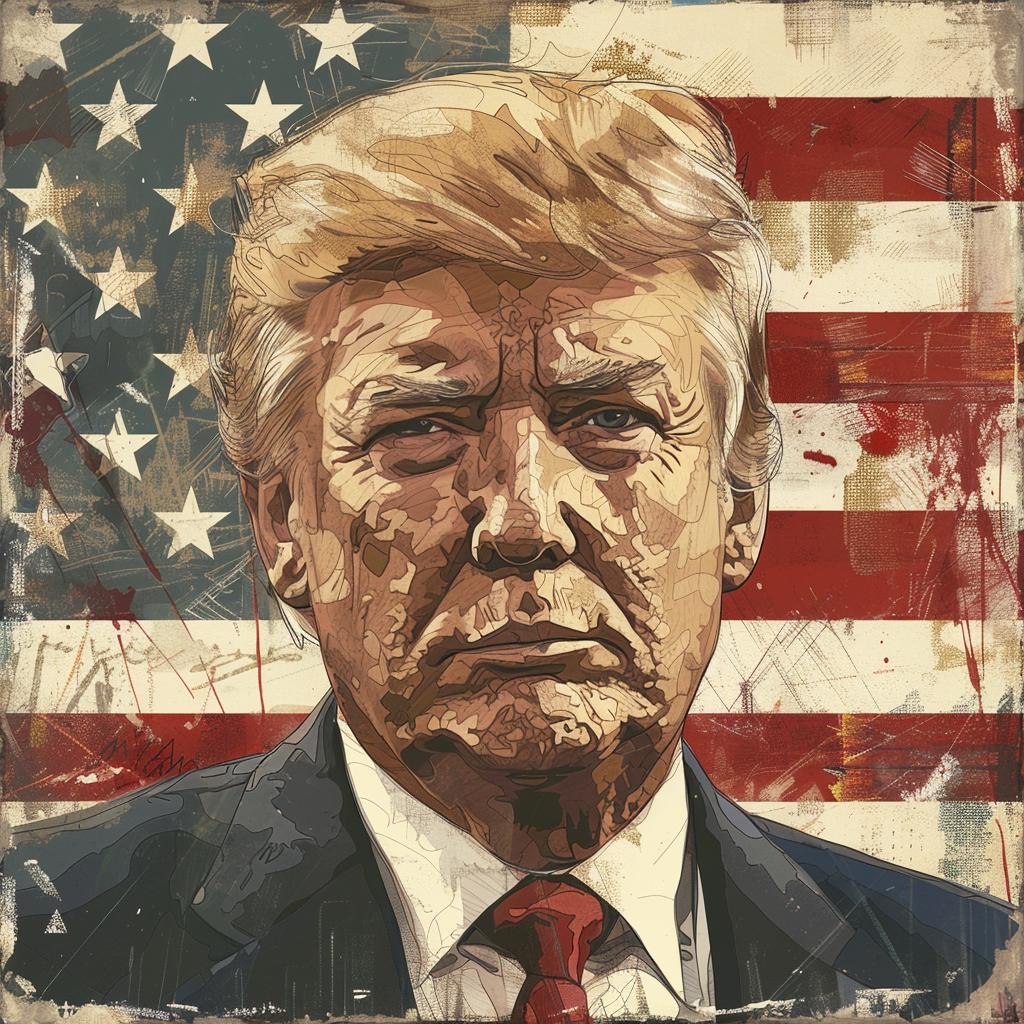Republican nominee. These two vastly different individuals generate significant debate among American voters regarding the future of the country’s democracy and economy. More than ever, voters understand the link between America’s international strength and its local economy. This election will largely determine whether the U.S. continues to lead the West or marks the beginning of the decline for the American superpower. Wall Street, the world’s financial and investment hub, views the current election primarily through an economic lens. Here, the facts speak for themselves: Trump holds a significant advantage over Biden. On a personal level, Trump began his career in his father’s real estate company, Trump Management, expanding it remarkably under his leadership. Trump’s net worth is estimated at around $5 billion, making him the richest president in U.S. history. In contrast, Biden has spent his life in public service with extensive experience in American politics, with his net worth estimated at about $10 million. From a business perspective, Trump clearly understands the economic world better than Joe Biden. Examining the performance of financial markets, the S&P 500 index is a leading global indicator, recently popular among Israeli savers with tens of billions of shekels in pension, provident, and study funds. Economically, “Trump’s economy” outperformed “Biden’s economy,” evident in the numbers. The S&P 500 rose an average of 14.1% per year during Trump’s four years as president. Under Biden, it has risen 8.7% so far. While this comparison is unfair since Biden’s term isn’t over, for Biden to surpass Trump economically, the S&P 500 would need to jump 28% by mid-January 2025—the end of Biden’s first term. Only one president in U.S. history achieved better results than Trump: Democrat Bill Clinton, who served from 1993 to 2001. **Military Industry Sector** Diving into specific sectors, Trump again shows a significant advantage over Biden. For companies in the U.S. defense and military industry, a Trump victory would be a win, for clear reasons. During his presidency, the defense budget steadily increased, with the last budget exceeding $700 billion. Additionally, in 2018, Trump approved record arms sales of $55.6 billion in his first full year in office, compared to $33.6 billion in 2016—a 65% increase. Throughout his current campaign, Trump has repeatedly stated his intention to significantly increase the defense budget, including upgrading fleets of ships and aircraft carriers, developing advanced warfare tools, and achieving technological superiority to maintain military dominance globally. Politically, Trump’s defense secretaries had ties to the defense industry: Jim Mattis was on the board of General Dynamics, Pat Shanahan was a senior executive at Boeing, and Mark Esper was a senior lobbyist for Raytheon. **Real Estate Sector** The sector most associated with Trump is real estate. Real estate companies can see one of their own entering the White House. Trump is known as a real estate entrepreneur who works to reduce bureaucracy and regulation in the industry. In his current campaign, the former president mentioned he would promote more relaxed regulations to encourage renewed growth. Looking at the U.S. real estate market over the past year, the situation favors Trump. In April 2023, there was a 23.2% drop in existing home sales, significantly reducing the profitability of local real estate companies. In major cities like San Francisco, prices fell to pre-pandemic levels. Real estate companies and developers see Trump as the solution, advocating for reduced regulation and investment encouragement, coupled with a tough stance on crime—benefiting the American real estate sector, particularly in large cities. **Banking and Finance Sector** Wall Street awaits Trump and the new reforms he is expected to lead in the financial sector, such as reducing the Dodd-Frank Act, which imposes reform and regulation on the U.S. financial system. This law was enacted by the Democratic Party and President Obama during the global credit crisis. Trump has also stated in interviews his aim to pass legislation easing capital raising for private companies, imposing tariffs on foreign companies, and promoting better trade deals. During his previous term, Trump led legislation and signed the Economic Growth Act, reducing the regulator’s power in the U.S. banking system. Despite significant challenges like the COVID-19 pandemic, trade wars, and geopolitical tensions, Wall Street remembers Trump favorably. The Dow Jones Index surged 56%, more than any other Republican president since Calvin Coolidge in the 1920s, and the S&P 500 showed the best performance since the 1960s under Trump. Therefore, Wall Street has much hope and belief that Trump is the right person to lead the somewhat weakened U.S. economy under President Biden.
